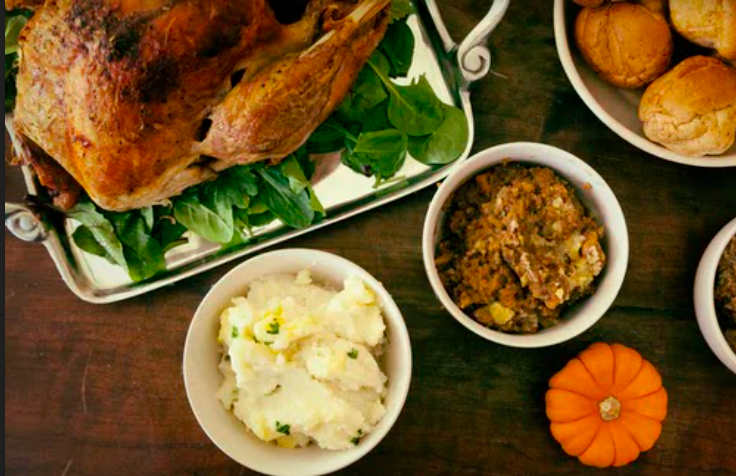What Thanksgiving means to Indigenous peoples
Photo by Pro Church Media on Unsplash
Thanksgiving is a controversial holiday among American Indians; some celebrate it and some do not.
November 23, 2020
Thanksgiving is a controversial holiday among American Indians.
Some Indigenous people completely disregard and protest against the holiday for its dark history, while others continue to celebrate it as a time to reconnect with family over a home-cooked meal.
Many American Indians don’t celebrate Thanksgiving because of the United States’ history of discrimination, violence, genocide and cruel policies against indigenous peoples.
In elementary school, I was taught that Thanksgiving is a peaceful holiday that originated when the Pilgrims and the Wampanoag Indians gathered for a meal together during the cool Plymouth autumn of 1621.
According to an op-ed in The New York Times by Robert Tracie McKenzie, a history professor at Wheaton College, “the U. S. still wrestles with challenges of diversity, and we’re still tempted to distort the ‘first Thanksgiving’ into one of two equally present-minded morality tales: the heart-warming multicultural celebration or the cruel reminder of European colonialism.”
What I wasn’t taught was about the events that followed after Thanksgiving – the Trail of Tears, the Wounded Knee massacre of 1890 and the removal of American Indian children who were then forced to assimilate into white American culture in boarding schools.
I didn’t learn about how the U.S. government essentially trapped American Indians into poverty on desert and isolated reservations with a lack of resources.
Some people might argue that while all of those unfortunate incidents are true, they don’t have anything to do with Thanksgiving.
But, as a holiday meant to celebrate peace, it’s controversial because of all the heinous crimes and tragedies that took place afterwards that clearly did not signal peace between settlers and Indigenous peoples.
When people think of Thanksgiving, they are recalling a part of history that didn’t play out as peaceful and friendly as people thought.
During Thanksgiving and Native American Heritage Month this November, people should be thinking about the first Americans and acknowledge the history about the struggles and hardships that they had to go through.
As someone who is part Chippewa Cree, one of the seven federally-recognized tribes in Montana, it was mind-blowing to learn about the history of Indigenous peoples in the United States. Growing up in a less diverse area of California, I never had the chance to learn about the history or culture of my tribe, which made me feel very disconnected from a part of myself.
Learning about the history of the injustices against American Indian peoples made me rethink about Thanksgiving and changed how I celebrated it.
Instead of just focusing on enjoying a meal with family, I also make sure to acknowledge the history and celebrate Native American Heritage Month. I try to reconnect with my culture by reading more and becoming more aware of American Indian issues and by practicing making fry bread.
Thanksgiving may be a controversial holiday because of the dark history of discrimination and racism against Indigenous peoples, but that doesn’t mean that we can’t change how we celebrate it by incorporating the acknowledgement of the American Indian struggle and by giving back to American Indian communities.






